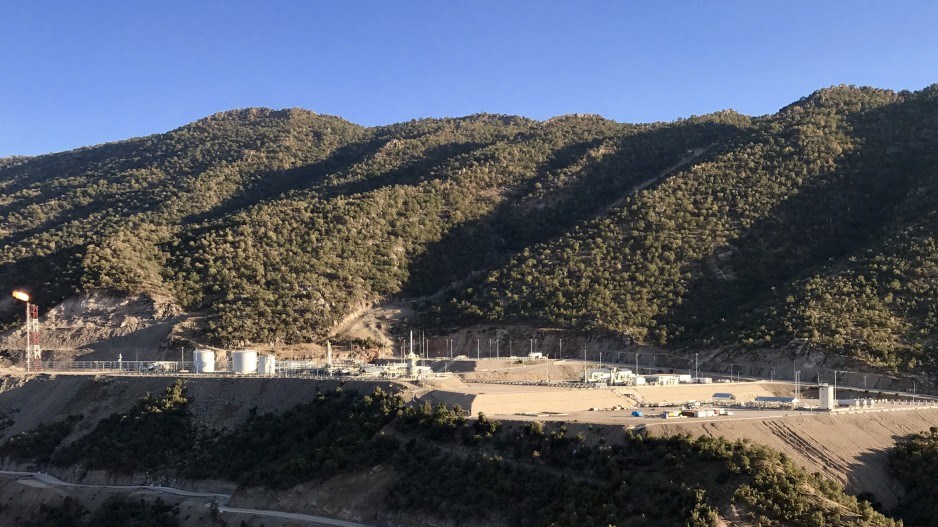Junior exploration companies sometimes take big risks when looking for oil or minerals in unstable and violent regions of the world.
But it would seem one junior oil exploration company headquartered in Vancouver, ShaMaran Petroleum Corp. (TSX-V:SNM), stuck its neck out further than most when it continued drilling for oil in Northern Iraq throughout the rise of the Islamic State group in Syria and Iraq between 2014 and 2016.
The Islamic State of Iraq and Syria (ISIS) controlled territory just 60 to 80 kilometres from the Atrush oilfields, where ShaMaran operates.
“We were actually drilling when ISIS came in,” said ShaMaran CEO Chris Bruijnzeels. “We had to stop for about three weeks.”
The risk ShaMaran and other operators in Kurdistan took is now paying off. ShaMaran has recently transitioned from an oil exploration company to an oil producer.
In December, the company received its first payment – a share of US$10.7 million paid to the operators by the Kurdistan government.
The main operator of the Atrush block is Abu Dhabi-based TAQA Atrush B.V. Marathon Oil Corp. (NYSE:MRO) has a 15% stake in the Atrush play. ShaMaran holds a 20% share.
ShaMaran was formed in 2009 by the Vancouver-based Lundin Group of Cos. as “a special-purpose vehicle” – an oil exploration company focused on Kurdistan. Lundin owns 17% of the company; Lundin Petroleum owns 5%.
Despite its proximity to the Islamic State’s brutal but short-lived caliphate in Iraq, Kurdistan was relatively secure, Bruijnzeels said, since Kurdish forces proved to be that region’s most effective fighting force. ISIS never breached Kurdistan’s borders.
Kurdistan’s two main political parties, the Kurdistan Democratic Party and the Patriotic Union of Kurdistan, each have their own armies. So when ISIS began to take over large swaths of Iraq, Kurdistan had the only effective fighting force in the region capable of keeping ISIS out of the region. The Kurds also played an important role in pushing ISIS out of key cities, notably Mosul.
Even so, ShaMaran had to shut down for a few weeks at the height of the crisis, and required Kurdish military protection. The Peshmerga – the Kurdish government’s official army – provides a special police force for the oil industry.
“Apart from when ISIS came in, thereafter we haven’t had any major issues with security,” Bruijnzeels said.
The biggest uncertainty in Kurdistan now is possibly not the threat from ISIS, but from the Iraqi government, which wants more control over Kurdistan’s borders, economy and oil exports.
The Atrush block began pumping oil in the summer of 2017 and is now up to 26,000 to 27,000 barrels of oil per day from four producing wells. That’s slightly less than the 30,000 barrels per day that the company reported in its last guidance for the end of the year.
A fifth well will be producing in the coming months, Bruijnzeels said, and there are plans to drill two additional wells. The oil moves through the Kurdistan export pipeline, connecting with a pipeline in Turkey, where it ultimately ends up at Turkey’s Ceyhan port on the Mediterranean Sea.
The Atrush play’s proven and probable oil reserves are estimated at 390 million barrels.
“We need to go to about 90,000 to 100,000 barrels of oil per day, if we want to get all the oil out in a 20-to-25-year time period, which essentially is the period we have got a production-sharing contract for with the government,” Bruijnzeels said.
ShaMaran Petroleum Corp. oil facilities in Northern Iraq. Apart from one brief shutdown, the Vancouver-based company continued drilling in the region during the rise nearby of the Islamic State group | Submitted



